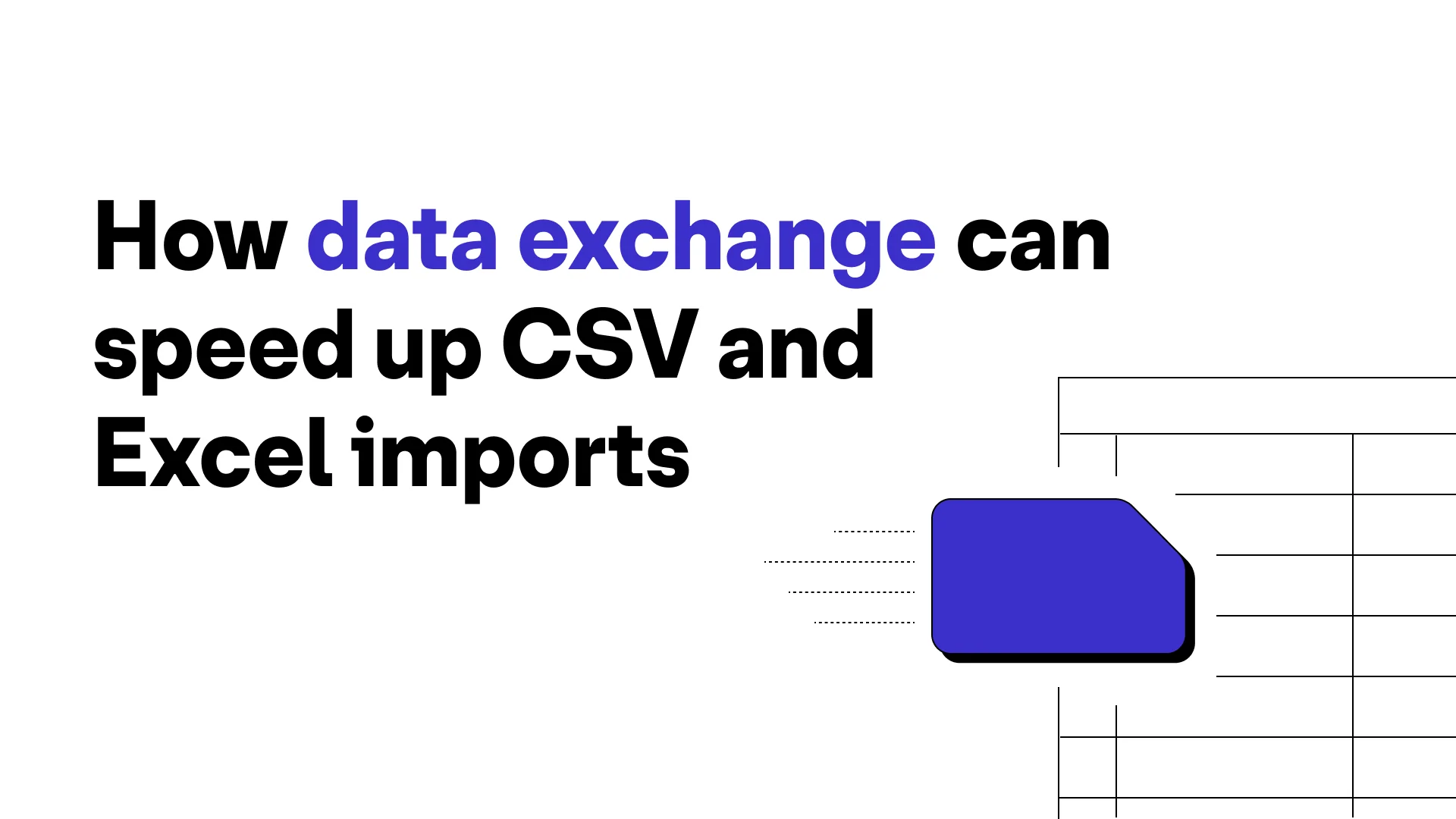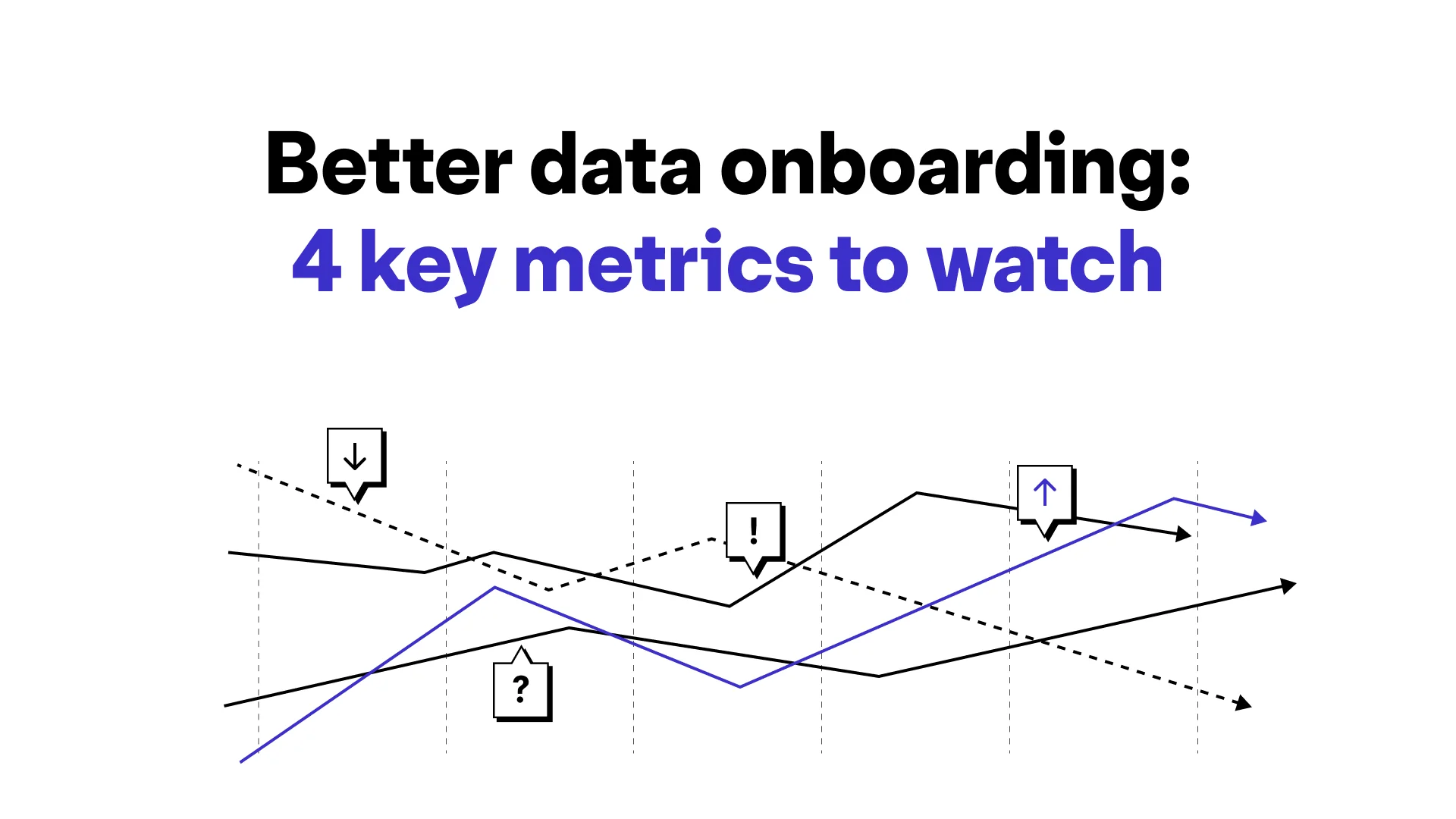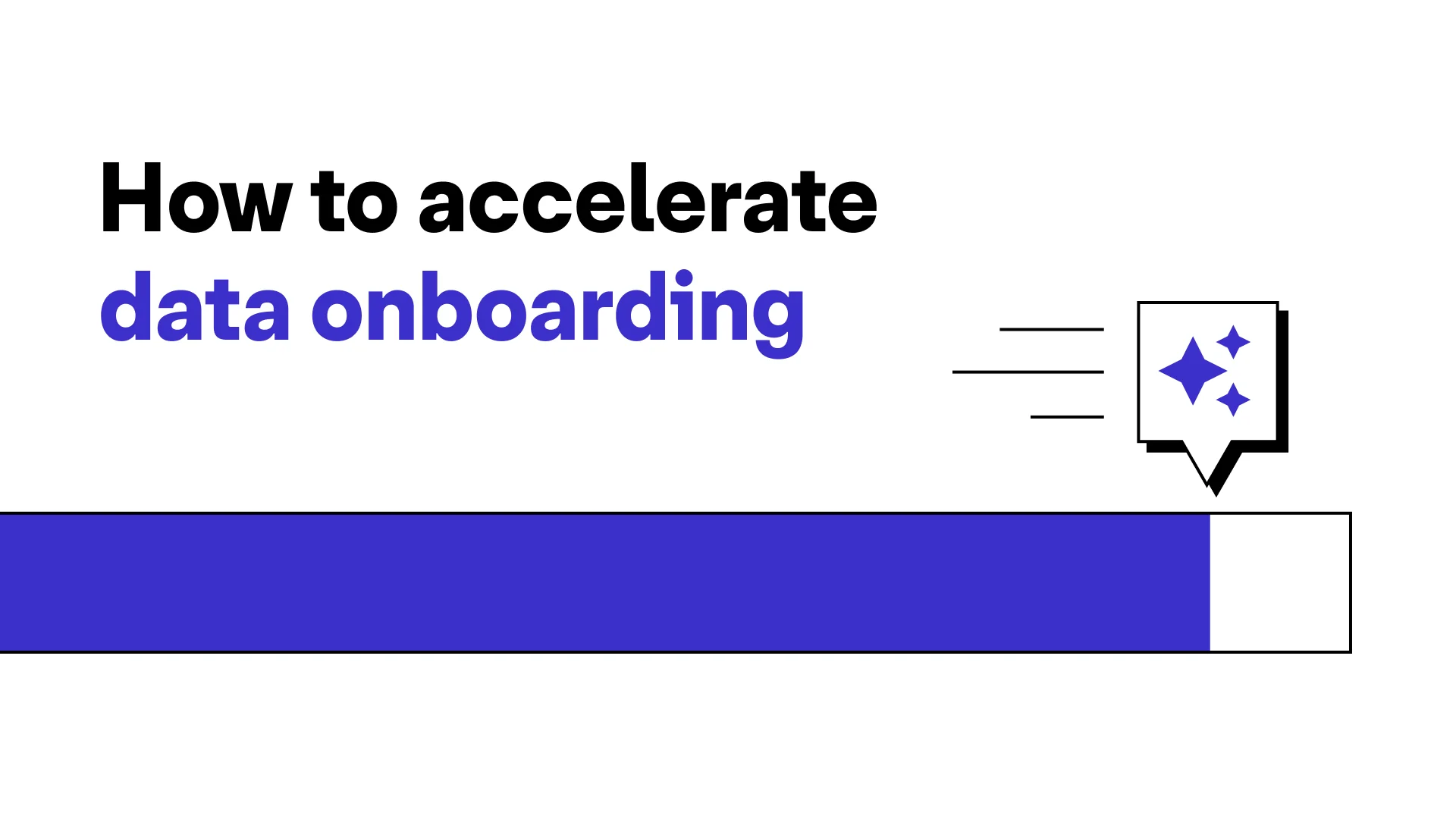9 ways a data file exchange solution can speed up CSV and Excel imports

Austin Brown
Enterprise Account Executive
Share to

If you’re reading this, your business relies on importing data from various sources, including CSV and Excel files. However, traditional import methods often have inherent limitations, like incomplete, incorrect or slow imports and cumbersome workflows. Organizations are adopting data file exchange solutions to overcome these challenges and streamline data import processes. These platforms offer a range of features designed to expedite CSV and Excel imports, which will drive efficiency and productivity across the board.
For example, if you have customers using your software application, loading that app with data is often a required first step for them to realize the value your solution provides. Any delay or complication in getting data into your app will affect your user's ROI, decrease customer satisfaction, and, in some cases, can be the cause of customer churn.
Importing data is critical for businesses across industries, and successfully navigating the process of importing, mapping, cleaning and transforming data is vital to ensuring a positive first impression.
Spend 70% less time onboarding data
Join a free demo to learn how to collect, map, validate, transform and convert the data that powers your business. Faster.
How data exchange accelerates CSV and Excel imports
A data exchange solution will streamline, accelerate and secure your data import processes, improving your customer experience and delivering rapid and sustained ROI.
Data exchange solutions significantly accelerate and improve data import by automating data file extraction, parsing, mapping, validation and transformation while allowing manual review, collaboration and oversight. This allows you to import different file types and sizes or receive data files from multiple sources like clients, partners, vendors, and team members. It reduces the amount of time your team spends on data file imports and increases the accuracy of your data. Speeding up your data import process will help you avoid the high costs of missed opportunities, delayed revenue and the time and resources involved in creating and maintaining workarounds.
Automating your data import workflows using a data exchange solution can have a significant impact on your business:
Accelerate time to value for customers and users
Accelerate timely decision-making when normalizing disorganized data
Accelerate data availability with quality checks baked in
Reduce the time and skill it takes to identify data errors
Reduce data management time with automation
Reduce or eliminate the time, resource requirements and cost for your product and software development team to build a robust solution from the ground up
9 technical data exchange components that speed up data imports
A data file exchange solution can help you speed up the import of a wide variety of data files, including CSVs and Excel spreadsheets, by using specific techniques. Here are the nine most common technical components for a robust data file exchange solution:
Automated data cleaning and validation: AI can assist in data cleaning by automatically identifying and fixing inconsistencies, errors, and missing values within datasets. Algorithms learn from patterns in the data and can automate the process of validating information against predefined rules, ensuring data accuracy and reliability.
Intelligent data parsing: Parsing data from CSV and Excel files can be complex, especially when dealing with unstructured or semi-structured data formats. Relevant information needs to be accurately and efficiently parsed and extracted. This intelligent parsing capability speeds up import times and improves data accuracy, ensuring that organizations make decisions based on reliable and high-quality data.
Enhanced data mapping: Manual data mapping, where users define how data fields in CSV or Excel files correspond to fields in the destination database or application, can be time-consuming and error-prone. Data exchange solutions with automation capabilities streamline this process by automatically mapping data fields based on predefined rules or machine learning algorithms. By automating data mapping, organizations can significantly reduce the time and effort required to set up imports, accelerating the overall import process.
Intelligent error handling: Data import processes can be disrupted by errors such as missing values, formatting inconsistencies, or data integrity issues. AI-enhanced data exchange solutions employ intelligent error-handling mechanisms that automatically detect, diagnose, and resolve errors during the import process. By leveraging machine learning algorithms, these platforms can identify patterns in error occurrences and proactively suggest solutions, minimizing downtime and ensuring smooth data imports.
Batch processing: One of the key advantages of data file exchange solutions is their ability to handle batch processing. Instead of importing files one by one, these solutions allow users to import multiple files simultaneously. By batching imports, organizations can significantly reduce the time required to process large volumes of data, enabling faster decision-making and analysis.
Parallel processing: Data file exchange solutions leverage parallel processing techniques to enhance import speeds further. By distributing import tasks across multiple cores or nodes, these platforms can process files in parallel, dramatically reducing processing times. This parallelization of tasks maximizes the utilization of available computing resources, leading to faster imports and improved overall efficiency.
Data streaming: Data file exchange solutions often incorporate streaming capabilities to facilitate real-time or near-real-time data imports. This streamlined approach to data import enables organizations to react promptly to changing data requirements and make informed decisions promptly.
Caching and preprocessing: To further accelerate CSV and Excel imports, data file exchange solutions may employ caching mechanisms to store metadata or preprocessed data. By caching frequently accessed data, these platforms reduce the need for repeated processing during subsequent imports, leading to faster import speeds and improved overall performance.
Optimized file handling: Data file exchange solutions include optimized file handling capabilities to minimize disk I/O operations and reduce overhead during import. These platforms employ efficient file read and write mechanisms, ensuring seamless data transfer and processing. By optimizing file handling, organizations can minimize import times and maximize productivity.
A data exchange platform can offer a robust infrastructure that supports businesses in managing, sharing and leveraging data safely and effectively. By leveraging these solutions, businesses can avoid the high costs of missed opportunities, delayed revenue and the time and resources involved in creating and maintaining complex workarounds.
Data file exchange solutions speed up CSV and Excel imports while driving efficiency and productivity. By leveraging automation and AI-enhanced features as well as techniques like batch processing, parallel processing, optimized algorithms, data compression and data streaming, they let organizations import data quickly and efficiently. As businesses are becoming increasingly reliant on data for critical decision-making, investing in the right solution for your company is essential for staying competitive in today's fast-paced digital landscape.
Stop wasting money
Download this free report to discover the missing piece that will help you reduce data errors and maximize revenue opportunities.


